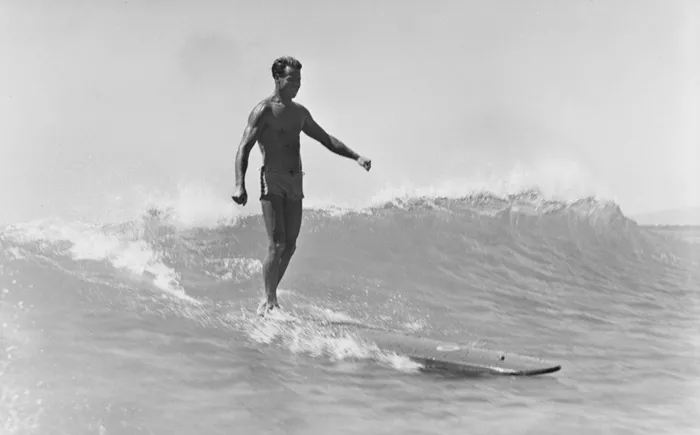The Virginia Beach Surf & Rescue Museum has unveiled a new exhibit dedicated to Tom Blake, a pioneering figure in surfing and lifesaving innovation. The exhibit, titled “Tom Blake: Surf and Rescue Innovator,” highlights Blake’s transformative contributions to the sport of surfing and coastal rescue.
Located at the historic Old Coast Guard Station on 2401 Atlantic Avenue, the museum recently completed extensive renovations to its iconic tower and catwalk. These upgrades offer visitors breathtaking panoramic views of the Atlantic Ocean and nearby 24th Street Park.
“We are proud to celebrate this sentinel and its renovation,” said Dana Sizemore, executive director of the museum. “The tower offers incredible views and represents a powerful story of resilience, preservation, and community.”
The museum itself owes its existence to dedicated citizens who preserved the 1903 Life-Saving Station, which was added to the National Register of Historic Places in 1979 and became Virginia Beach’s first museum.
The new exhibit embodies the museum’s mission to honor the region’s maritime heritage, the U.S. Coast Guard, the Life-Saving Service, lifeguarding traditions, and the vibrant coastal community, Sizemore added.
Tom Blake’s Innovations Take Center Stage
Curatorial manager Deena Sasser explained that Blake’s creativity continues to influence modern surfing. “Blake was incredibly inventive. Many of his ideas seem obvious now, but he was the first to see the problems and engineer solutions,” Sasser said.
Among Blake’s landmark contributions was the addition of the surfboard fin, a feature now standard but only introduced within the last century. The exhibit also showcases Blake’s designs for the first hollow surfboard and hollow paddleboard, innovations that dramatically reduced weight and increased buoyancy.
Another highlight is Blake’s invention of the waterproof surf camera housing, developed in 1929, which allowed photographers to capture images directly on the water.
Connecting Surfing and Rescue History
Visitors can explore multiple sections of the museum featuring local lifeguard memorabilia, including vintage shorts, jackets, life-saving gear, and photographs. A detailed map marks notable shipwreck sites along the coast, with artifacts from the shipwreck of the Dictator—such as a life preserver, cabin door, and a lion’s head carved from the ship’s stern—on display.
“Surfboards were not only for sport but also served as crucial rescue equipment,” said Sasser. “They enabled lifeguards and the Life-Saving Service to assist multiple people simultaneously. Our museum bridges the worlds of surf and rescue through these compelling stories.”
The Virginia Beach Surf & Rescue Museum’s renewed focus on Tom Blake’s legacy offers visitors a rich exploration of innovation, community, and coastal heritage.


